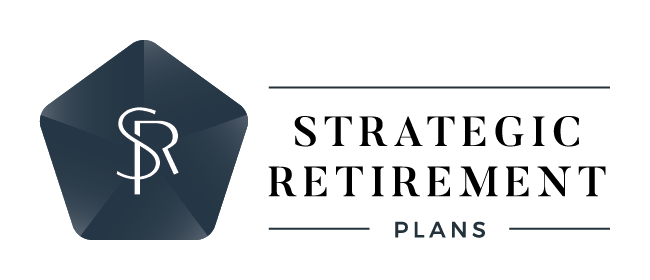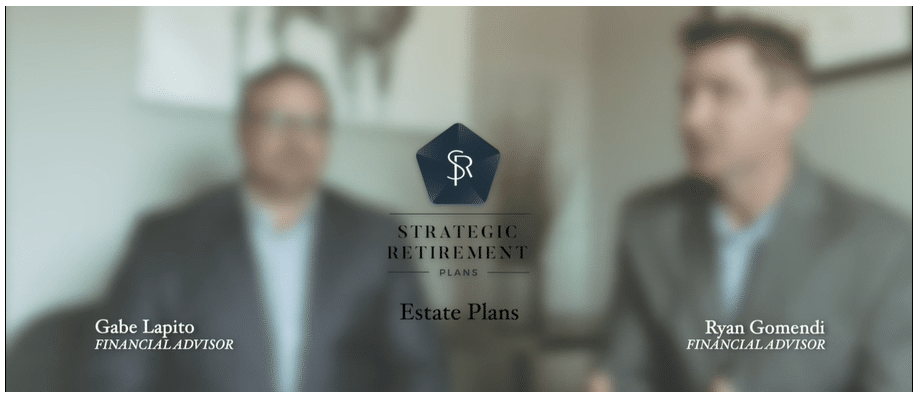How to build a foundation for your estate and plan for the future. Ryan and Gabe face hard topics and offer great advice on setting up an estate plan.
How You Can Prepare Financially for the “Storms” of Life
With COVID-19 happening, one of the questions that’s been asked frequently among many of our clients and even people our age is “What do I need for an estate plan?”. An estate plan is, sadly, not very fun to talk about. It’s essentially what happens when you die and preparing for that day.
What Does an Estate Plan Include?
The way we look at this is that an estate plan is the foundation of someone’s “financial house”. Those documents include a will, a medical power of attorney, a financial power of attorney, a living will, and depending on real estate holdings, it might mean a beneficiary deed or even a living trust.
Preparing Estate Plans Before the “Storm”
If people don’t have those documents when the “storm” sets in, then their financial house could come crumbling down. Sometimes, this crumbling down means death or it could be long-term disability. That’s what a power of attorney might handle. Those documents are so critical not when things are good, but when things are bad.
We know this isn’t fun to think about but, with this pandemic, it has come up a lot recently because many people feel unprepared in this area. This is the financial foundation to your house; meaning, this is what the structure gets built on.
4 Estate Planning Mistakes that Show up in the Storm
1. Out of Date Beneficiary Designations
You’ll want to be sure that your beneficiaries are updated on all of your financial accounts. Examples of accounts you may have are brokerage accounts, IRAs, life insurance policies, bank accounts, and others. Consult with your attorney about ways to transfer accounts to your beneficiaries (known as TOD – Transfer on Death) – this could enable funds to skip the probate process. There’s nothing worse than assets being held up or confusion ensuing because beneficiaries weren’t updated in all places. Even if your will names specific people, you’ll still want to have their names as beneficiaries on all of your financial accounts.
2. No Financial Power of Attorney
Life happens and sometimes, it happens so fast. Don’t wait until it’s too late. God forbid, if you ever become incapacitated or unable to handle your affairs, not having a financial power of attorney can complicate things and bring further stress on your loved ones. Having a durable financial power of attorney can help. It will ensure that the person of your choice has the authority to act on your behalf. Consult with your attorney to ensure your plan is in place.
3. Outdated or Lack of an Asset Inventory
Scheduling an annual scan of your household, inside and out, is a good habit to include for your financial wellness and future. You might be very surprised at how much things add up. As you are doing an inventory scan, some things to consider are your primary residence, other properties, collectibles, art, coins, vehicles, boats, and any other valuable, tangible possessions.
Next, consider the intangibles. These can include life insurance policies, retirement accounts (RA, 401(k)s, 403(b)s, SEP IRAs, pensions, etc.), checking accounts, savings accounts, stocks, bonds, mutual funds, health savings accounts, and more.
After making a complete list, now assign a value to each of them. You can do so for things like real estate or coin collections by ordering appraisals. At a minimum, do your research so that you can have an approximate value on each asset. By doing so, you can obtain peace of mind knowing that your assets will be distributed according to your wishes.
After you have a complete inventory of your assets, you should make sure that your documents are well-organized and stored securely. These documents include insurance policies, deeds to real estate, titles to vehicles, boats, wills, trusts, bank account information, retirement account information, safety deposit boxes, debt statements, funeral plans, and anything else relevant to your situation.
4. Not Consulting with an Attorney
Use the professionals. This is what they help others to prepare and plan for daily. They can help assess if your planning is adequate for your circumstances. Since estates come in all different sizes, an estate attorney can help you create a plan. At a minimum, consulting with a tax professional can provide value. Taking these steps can alleviate any doubts you may have about the probate process, taxation, or distribution of your assets.
Living trusts, your will, revocable trusts, business succession arrangements, inherited properties of minors, and POAs are all additional things that you should discuss with your attorney. If your estate is on the smaller side, or if you are young, there are online tools that can help guide you through the process at little cost and provide you with peace of mind.
It is never too early or too late in life to make these prudent financial arrangements! Preparing for the storm before it hits is always better.
So if you’ve never thought about this, or you have questions about any of the documents or steps we just talked about, we would love to chat with you.
*This message is for informational purposes only and is not legal advice or opinion. Consult with an attorney for your estate planning needs.


